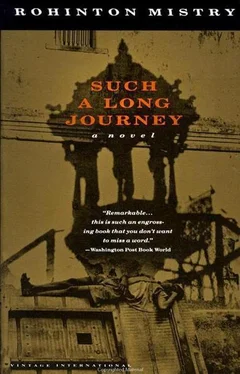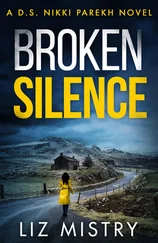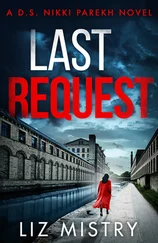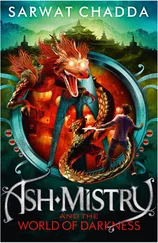The women in the House of Cages peered outside to see if there was any sign of customers. To their dismay, nowadays the men preferred to listen to Peerbhoy Paanwalla and go home, rather than come inside.
‘Then the military made a suggestion: guns, they said, was the answer. How? asked the others. The military explained. The Drunkard’s personal pistol had putrefied and could fire no more — so simply remind him of all the other guns he possessed: fire-spewing, lead-spitting, death-dealing guns. To command as he pleased. To make him forget the failure of his own little derringer.
‘It was not surprising that the military people found the proper solution. After all, the Drunkard was a military man himself, and they knew how to cure the ills of one of their own. Especially when the cure fitted their own plans. The therapy could begin soon, for the perfect setting was ready: the East Wing, where the Bengalis were just asking for it.
‘So the Drunkard inspected his guns: the light artillery, medium artillery, heavy artillery, anti-aircraft, mortars, howitzers, tanks, bazookas. And they touched a tender corner somewhere, awakening happy memories. He began to drool. A peculiar grin came over his face, and the lackeys and toadies heaved sighs of relief. Call my Butcher, he said, and they fell over each other to fetch him.
‘My dear Butcher, said the Drunkard, I have a job for you in the East Wing. The Bengalis are forgetting their place. Those dark-skinned shorties are using big-big words like justice and equality and self-determination, which makes them feel tall and fair and powerful like us. Go there and sort them out.
‘The Drunkard himself would not journey to the East Wing, but he wanted to be kept minutely informed of how his guns were doing. The Butcher promised: he would click many pictures and write often. Hopping and skipping with excitement outside the presidential palace, he went off licking his chops.
‘At first, the Butcher and his men had a real picnic. What fun, so many guns to play with, so many live targets. But there was not much variety to their days or nights. Then the monsoon started, and their nice-nice uniforms got muddied like their minds, and big-big mosquitoes began to bite.
‘Blotting out the ideas of justice, equality and self-determination from the minds of Bengalis was harder than they expected. No matter how many Bengali skulls they shattered — one million, two, two-and-a-half million — there were always more heads to consider. More heads inside which those same troublesome ideas of justice, equality and self-determination flowered, blooming with a fragrance that drove the Butcher’s men crazy, because their noses were not used to anything stronger than the base, cowardly smells of tyranny and despotism.’
In the House of Cages the women waited restlessly. This war was no good for business, what with the refugee relief tax forcing them to raise prices; the blackout sending men home early; and now these new stories, arousing patriotic passion and national pride instead of priming lust.
Peerbhoy Paanwalla cleared his throat, spat, and wiped his lips. ‘So, my brothers,’ he continued, adding ‘and sisters’ after waving at the barred windows, ‘in the end, despite the many women still unravished and the numerous mass graves still left to fill, the Butcher and his men turn their backs and run for home: to their polo clubs, cricket-fields and swimming-pools. Especially since the Indian Army is drawing closer, and they can hear the strains of “Jana Gana Mana” playing in the distance.’
The listeners cheered spontaneously, clapping and shouting ‘ Sabaash !’ and ‘ Bharat Mata ki jai !’
While waiting for the applause to die and the audience to settle down, Peerbhoy got busy with his hands. He had recently introduced a new product that was selling extremely well, called the Patriotic Paan. Instead of folding betel leaves into their usual triangles, he made little rectangular trays of each leaf. Then he filled them with tobacco, chunam, and other ingredients, arranging the colours in three horizontal bands: saffron, white and green. A little round seed at the centre completed the representation of the Tricolour.
‘Now, my fellow-countrymen,’ continued Peerbhoy, ‘let us remember’—he paused to stick a cheroot in his mouth—‘this is not the end, nor is it the beginning of the end. But it is the end of the beginning.’ Those who got the joke broke into applause again: Too good, yaar, they said. But many had never heard of the cigar-smoking fat man, and were left in the dark.
Gustad looked at his watch and reluctantly tore himself away from the group. Ever since the blackout had begun, Dilnavaz had got into the habit of fretting, despite his repeated explanations that traffic was slower than usual because of the darkened streets.
Tehmul was on his hands and knees in the compound, running his fingers frantically over the pebble-studded brown earth. ‘GustadGustadGustad. DarkdarkGustaddark. Odarkdarkdark.’
‘What’s wrong, Tehmul?’
‘LostGustad. Lostlostindark.’ He continued rooting in the dirt, distraught, mumbling to himself. Gustad clicked on his pocket torch.
Tehmul was enchanted by the beam. A radiant smile spread over his face and dislodged his agitation. Still kneeling, he reached an inquiring finger towards the source of luminescence and gently touched the lens. ‘GustadbrightbrightshinyGustad. GustadGustadlightsobright.’ The rays played upon his beaming face, upon the innocent joy he displayed for the rusty old torch’s meagre light. Sadness and affection filled Gustad’s heart. In this pose, with his blissful smile, he thought, Tehmul’s picture would fit right in among the others upon the black wall.
With the help of the torch Tehmul soon spotted what he was looking for: the little beaded bracelet from the doll’s wrist. ‘Foundfoundfound. FoundGustadfound.’ He was exuberant with gratitude. ‘ThankyoufoundGustad. Thankyouveryveryverymuch.’
Gustad switched off the torch. ‘Lightgone,’ said Tehmul sadly. ‘Lightgonedarkdarkdark.’ Gustad patted his shoulder and speeded him on his slow, tedious climb up the stairs.
After the euphoria of flags, banners, and victory parades had passed; after the crowds’ last cheers for the Jawans and the Prime Minister had faded; after the enemy’s unconditional surrender had wiped out rankling memories of ignominious defeat at Chinese hands nine years ago, and 1965’s embarrassing stalemate with the death in Tashkent of Shastri, the big little man; after the billboards and hoardings were divested of wartime exhortations; after the blackout was lifted and cities returned to light which, after long darkness, seemed like Republic Day illuminations: after all this, Gustad still did not remove the paper from his windows.
Darius and he dismantled their air-raid shelter and pushed the four-poster back to its original position. The phials of iodine and mercurochrome were replaced in the sideboard along with the gauze bandages. The empty biscuit tin went back to the kitchen. The light bulbs were allowed to shed their cardpaper cones. But the windows and ventilators were left untouched.
Dilnavaz was patient for one more day, then asked, ‘What about the black paper? Or are you waiting for another war?’
‘Why the big rush? I’ll do it when I have some time.’ Gustad went outside, and saw that the pavement artist had finished building his little lean-to at the far end of the wall. Inside were a few clothes, his sleeping mat, the Petromax, and painting supplies. His old crayon boxes were also there, for though the artist had come to regard these with fond condescension, relics of a time outgrown, he did not have the heart to throw them away.
Читать дальше












